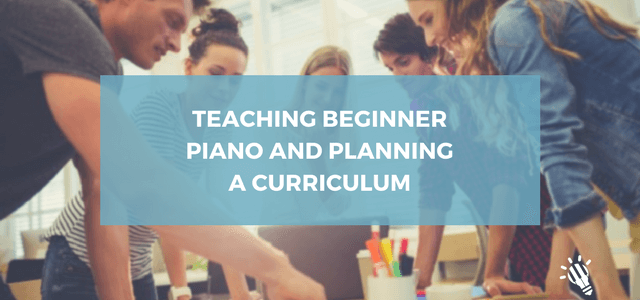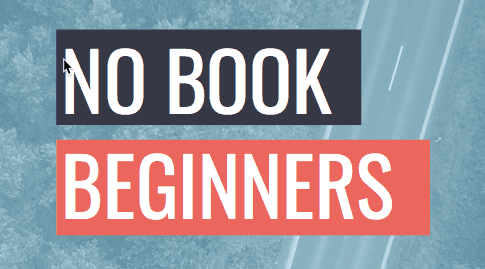This month’s theme is all about teaching beginner piano in a more fun and creative way and planning lessons for maximum impact without relying on exam boards or other set curricula. I’ll be releasing my “No Book Beginners” course to help you engage your students in creative, musical activities before they ever open a method book and we’ll explore ideas for lesson planning and sequencing at all levels. Can’t wait!

This month’s theme is all about teaching beginner piano and planning lessons for maximum impact without relying on exam boards or other set curricula.
I’ve combined these together as many of the ideas will be linked:
I’m very passionate about giving students a fun, exciting, creative start to their piano lesson experience.
For me, this means that I don’t do any reading or use any method books for at least a term (10 weeks of school in Australia).
Instead, during this time I do lots of fun activities with students like exploring simple improvisations, getting students to create musical stories on the piano, lots of rhythm and singing work and so forth.
You’d be surprised at how easy it is to fill many weeks with activities that students are going to love, that are great for their musical development, that will spark their curiosity and that don’t require any reading.
We’ll also look at:

I’ll also be launching my 10-week No Book Beginners Course and will show you exactly how to get started on the next webinar and through lesson plans and training videos.
Can’t wait to share this with you – it’s been 18 months in the making!
We’re also going to zoom-out and take a look at the bigger picture of planning lessons (single lessons and series of lessons) for students.
In Australia and the UK (and many other parts of the world), piano teaching is heavily influenced by exams and many teachers, who were taught an ‘exam syllabus’ when they were learning, tend to use the structures and repertoire of the exam boards as the sole basis of the lessons they plan for students.
The exam boards themselves make it very clear that this was never the intention of the exam system.
For example, here’s Tim Arnold, Executive Director of Global Operations from the ABRSM discussing this in a podcast where he clearly states:
…an exam is a syllabus, not a curriculum. A curriculum is a plan of action for a year, whereas a syllabus is a measure of your ‘temperature’ at any one point in time.
Have a listen to our discussion about it in this video (it’s cued to the spot you need):
You can find out more about the full episode here.
So what do you teach and how do you program lessons if you have only ever followed an exam or festival system in the past?
And how do you fit everything into a 30-minute lesson anyway!?
Here are some questions we’ll explore the answers to:
I believe this is going to be a really affirming, positive, exciting month for teachers who struggle with these questions or have wondered about alternative ways to approach beginners.
Do you have any questions about beginners or curriculum/lesson planning?
If so, please leave it below and I’ll do my best to answer it during the month 🙂

Richard Hill says:
Yes, it is better to have the curriculum for the specific piano lesson, so that you can sure that you are proceeded forward. I agree with your insight..!
David says:
Hi,
I’m a beginner piano teacher just starting out. I was thinking of starting out by teaching how to improvise. You mentioned you don’t start out with a method book. What should I focus on in the beginning and what are some good method books for students that also come with a good teacher addition?
Thank you,
David
Tim Topham says:
Hi David, check out https://staging.topmusic.co/teach-piano-beginners-lesson-plans/ 🙂
Terry says:
This sounds great. Timeline?